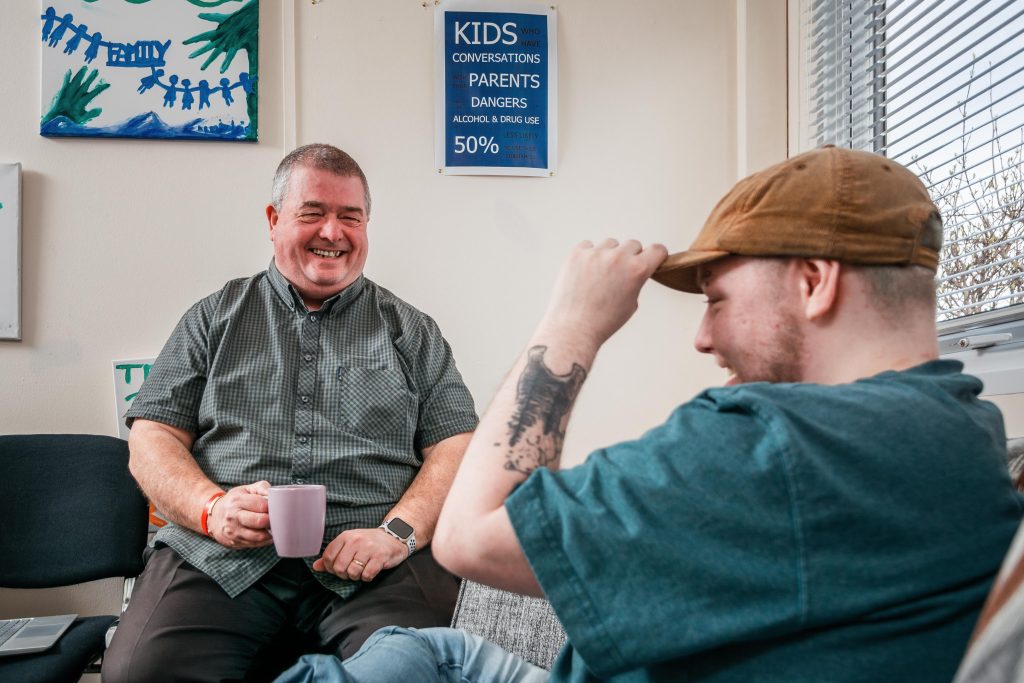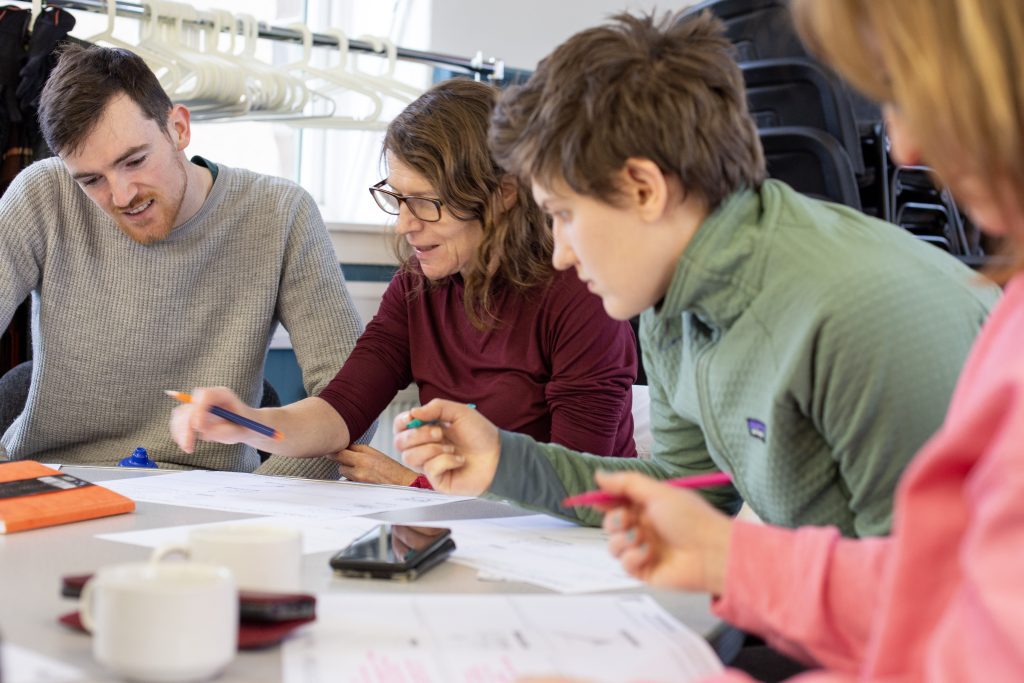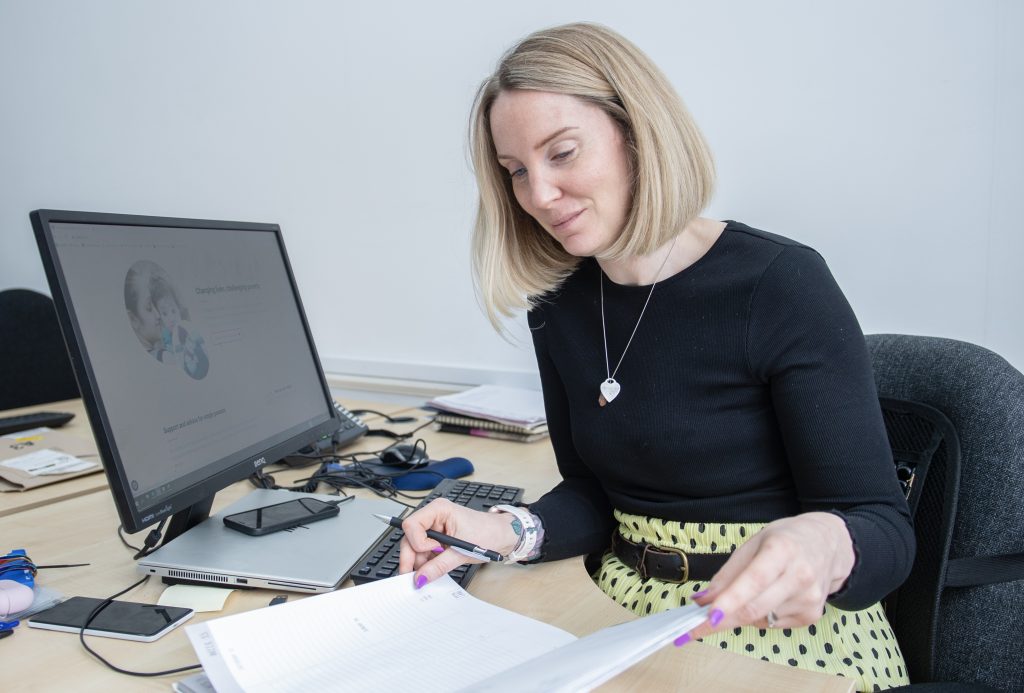13 February 2024
How can we can best play our role as a funder in helping babies, toddlers and their families to thrive?
Rowan Boase
Under our Health and Social Causes theme, one of our focus areas is support for families with children in the early years, or even during pregnancy. Here, we share the learning journey we’re on, as we consider how we can best play our role in helping babies, toddlers and their families to thrive.

More than any other time in life, our earliest experiences lay the foundations for our future wellbeing and life chances. From birth to 18 months, babies’ brains are growing at an astonishing rate of over a million new connections per second. It’s a time when a nurturing, responsive relationship with a caregiver teaches us the world is safe and that we are loved – setting the scene for all of our future relationships and learning.
It’s also a time of great change and challenge for a family. Since my daughter was born in 2021, it’s been an overwhelming experience of love, joy and learning – with lots of exhaustion and plenty of difficult times too.
In these early days – and even during pregnancy – parents and babies are very vulnerable and need support of many kinds. The challenges are greater for families facing existing disadvantages, like poverty, trauma or mental health problems.
Too often, early or preventative support isn’t available in a system where stretched resources are – understandably – diverted to those already in crisis.
(The video below, from NSPCC, explains more about how early experiences lay the foundations for babies’ brain development.)
Many tools in the box – flexible and holistic support
Initially, we looked to support specific evidence-based parenting programmes. These are valuable in that they provide a structured and proven way to develop parenting skills and connect with fellow caregivers.
But all families’ goals, strengths and needs are different – and increasingly we learned that families need tailored support, with structured parenting programmes being just one ‘tool in the box’.
We’re now largely focused on supporting organisations providing ‘holistic family support’ – support that is flexible, multi-faceted and that considers the whole family and their context. This could be, for example, providing a listening ear, giving practical help at home, advice on money and work, or opportunities for new friendships – or all these things at different times. All with the aim of enabling that family to thrive and for a child to have the best start in life.
Learning from community-based family support charities
In 2022 we co-commissioned some research with Cattanach, a specialist early years funder, to help us better understand the ‘landscape’ for community-based charities delivering holistic family support. This highlighted the strengths of this type of support, for example that it:
- Helps parents build skills and confidence through modelling
- Provides support that isn’t time limited
- Has a close and constructive relationship with statutory services
- Connects parents and families with each other, harnessing the power of shared experience

But the research also highlighted there are lots of challenges for these organisations – like rising demand, higher and more complex levels of need, a shortage of counselling and therapeutic services, as well as staff recruitment, retention and burnout.
Like in other sectors, raising funds for this work is not easy. In the research, service managers explained some of the funding challenges, including:
- reduced local authority funding
- funders of various types overlooking the value of early and holistic family support
- funding being silo-ed by age or other characteristics, or being too short term
How can we best play our role as the Foundation?
All of this leaves us asking, how we can best play our role as a modestly-sized independent funder in this space? We know long-term, unrestricted funding is key – but, especially if we want to give meaningfully-sized grants, our funding for frontline support will only go a little way.
Collaboration with other funders – including statutory funders – seems crucial to help us better understand the patchy funding system we are operating in, and to enable more coordinated efforts. As a first step, we want to support Cattanach in continuing to facilitate a shared a forum for funders with an interest in this area, the Funders for the Early Years Group in Scotland. We have a long way to go on further funder collaboration and welcome any suggestions or ideas.
We also plan to continue to give a small proportion of our funds to support ‘behind the scenes’ work that is about networks or the early years workforce, or to work that seeks to influence wider change, so that ultimately more families can get early support that is centred on them.

Poverty – the elephant in the room?
One question that we find ourselves grappling with lately is, with almost one in four of Scotland’s children still living in poverty, is there a limit to how effective family support can be whilst a family doesn’t have enough money to meet its basic needs and to take money worries off the table?
Others in Scotland and beyond are asking this too. We were interested, for example, to learn more about the Baby’s First Years study in the USA which gives direct cash transfers to low income mothers, at a recent event hosted by Nesta and Save the Children in Glasgow. It found that after one year, infants whose mothers had received $333 dollars per month from the project, were more likely to show faster brain activity in a pattern associated with learning and development at later ages – although structural inequalities remained.
We can’t journey alone
Our learning journey is ever-continuing. Much like in family life, we know that we need to keep listening, responding and nurturing our relationships. We welcome any input to help us navigate a course that maximises our contribution to enabling babies, children and families to thrive.




